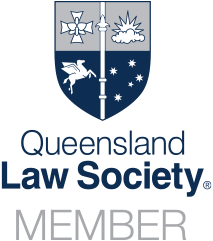Mediation
We think “outside the box” for workable, practical solutions to suit your situation
MEDIATION SERVICES & FEES
Our Principal is also an accredited Family Dispute Resolution Practitioner. This means she is available as an independent, private mediator for parenting and/or property matters. (Note: this doesn’t apply if our Principal is already representing, or has at some point represented, either party as a lawyer)
Why mediation?
Under family law in Australia, the family dispute resolution (FDR) process, or mediation, was implemented to encourage parents (and others) to make a “genuine effort” at reaching agreement on a range of separation issues – most importantly about arrangements for children. Only accredited FDR practitioners can issue a “60I certificate”, which verifies participation in mediation and is generally required before beginning legal action.
Benefits of mediation
Participation in mediation provides an opportunity to negotiate a win-win outcome, tailored by you, to suit your individual circumstances and children. Instead, putting decisions about your children in the hands of the court is a process that can take both an emotional and financial toll, and that rarely produces the positive outcomes you might anticipate.
Mediation offers a confidential and facilitative environment, as well as a level playing field on which the focus is on “the best interests” of children, rather than the wants and needs of parents. With most parents agreeing on wanting what’s best for their children, mediation can assist in developing “cooperative parenting relationships”, shown to minimise the potential negative impacts of separation on children.
When to try mediation
Mediation can be commenced at any stage of a relationship – before, during, or following separation, or even after a court case has begun. If communication has broken down and relationships with children are being affected, mediation can help to rebuild focus on the common goal of the best interests of children involved.
What can mediation cover?
Mediation can be as complex or as limited as it needs to be. It is mainly used to resolve disputes about:
- children and parenting;
- division of property;
- spousal maintenance and/or child support.
Each issue agreed upon is a step forward, and one which the courts view favourably should the matter progress to court. Agreements reached at mediation do not have to cover all issues, and can be applied over short or long terms to consider the changing needs of children over time, or any other individual circumstances.
Formalising agreements made, even partial agreements, is a straightforward process. The reassurance of making agreements legally binding, by applying for consent orders through the courts, is an optional service that we can also assist with if required.
Is mediation always suitable?
Family law recognises that not every situation is appropriate for mediation so exceptions may apply for cases involving urgency or family violence. However, wherever possible, mediation should be considered as a support to maintain parenting relationships rather than destroy them. For that reason, we will consider all available service delivery options to ensure the safety and comfort of all parties.
Ways we deliver mediation services
Our Principal’s mediation services are available via a range of approaches and styles to suit individual needs. This can be of particular benefit when there is physical distance or high conflict between the parties, or other limitations to physical attendance such as rural living or hours of employment.
- Initial comprehensive “intake interviews” are usually carried out by telephone or video meetings – and, when possible, would be scheduled at a time that minimises disruptions.
- Mediations are offered via a variety of service delivery modes including in-person attendance (at meeting rooms), or electronic attendance options (by either telephone or online video conferencing) – or any combination of these. Electronic attendance is the preferred mode of service delivery though and any in-person services will be at the discretion of our Principal depending on suitability and practicality.
- Generally mediations are held jointly, where the parties all meet together (whether in-person or by phone or video conferencing). However, if there are safety concerns or other issues that may limit effective participation, a “shuttle” conference may be used as an alternative. This involves the FDR practitioner “shuttling” between the parties instead (whether in-person or electronically).
Being accredited by the Australian Government Attorney-General’s Department, our Principal is able to offer electronic service delivery Australia-wide, as well as in-person from the Sunshine Coast to Tweed Heads.
Mediation Fixed Fees
Stage One – Retainer (usually split between parties)
Comprehensive intake interviews, including 60I Certificate if applicable $440 (including GST)
Stage Two – Mediation (usually split between parties)
Up to four hours by electronic attendance, including 60I Certificate/s $1,320** (including GST)
Up to eight hours by electronic attendance, including 60I Certificate/s $2,310** (including GST)
**additional flat fee for in-person attendance $100




